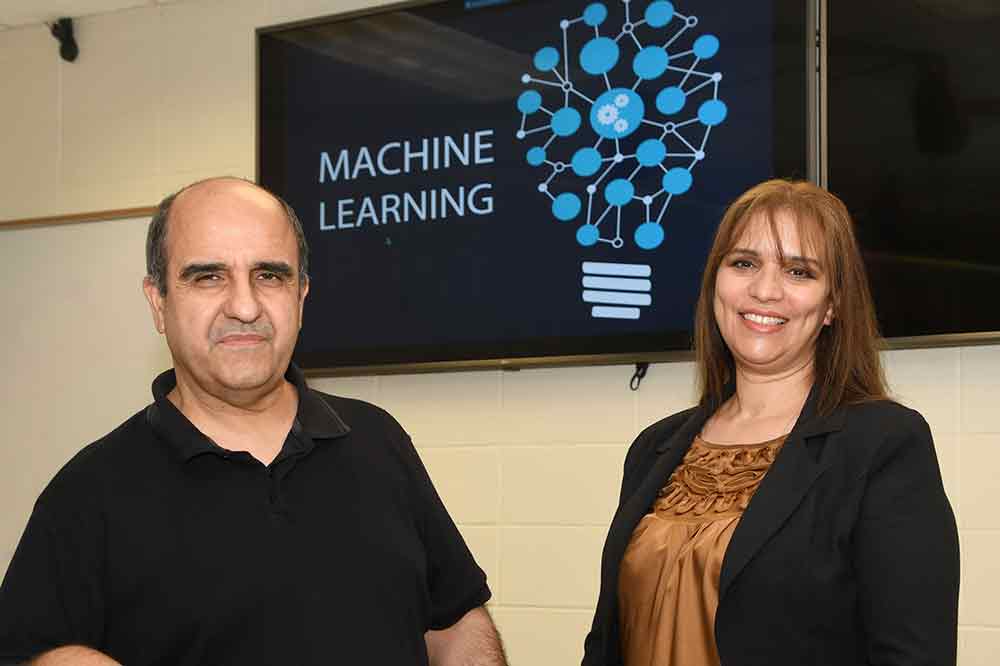
DSU awarded NSF research grant for data science/machine learning project
The National Science Foundation has awarded Delaware State University a three-year, $584,970 grant that will put into research practice the use of data science and machine learning in identifying and analyzing biomolecules.
Delaware State University is the lead institution in this research project, and scientists from University of Delaware and the University of Virgin Islands are also collaborating researchers.
Dr. Hacene Boukari, Professor of Physics and Engineering, is the Principal Investigator of the project. Co-Principal Investigators are Dr. Fatima Boukari, Associate Professor of Computer Science, and from the University of Delaware, Dr. Cathy H. Wu, Professor of Computer Science, and from the University of Virgin Islands Dr. Marc K. Boumedine, Associate Professor of Computer Science. This collaborative effort aims at reinforcing partnership among the institutions and at energizing the data science initiative at Delaware State University.
Detection and accurate characterization of biomolecules are integral components of diverse research disciplines and technologies, including medical diagnosis, forensic science, water quality monitoring, food safety, drug delivery, and material design. The innovation of this project is the integration of machine learning methods into the analysis and modeling of spectra obtained from different spectroscopic techniques, which are considered signatures and fingerprints of the biomolecules.
The researchers also hope to address fundamental questions in machine learning and build physics-informed, rigorous, and efficient machine learning models with the use of spectral data. These questions include how to handle mixed or sparse data, how to augment spectral data in limited databases, as well as how to provide new understanding regarding the relations between noisy data and accuracies from training and testing models.
One major objective of this project is also training and mentoring students from Delaware State University and University of Virgin Islands in the realms of data science and machine learning. Together with their collaborators both Drs. Boukari will engage students to be trained in a complete lifecycle of a data science project from collecting data, preprocessing the data, designing the algorithm of a machine learning, coding the algorithm, training and testing the model, and validating it.

